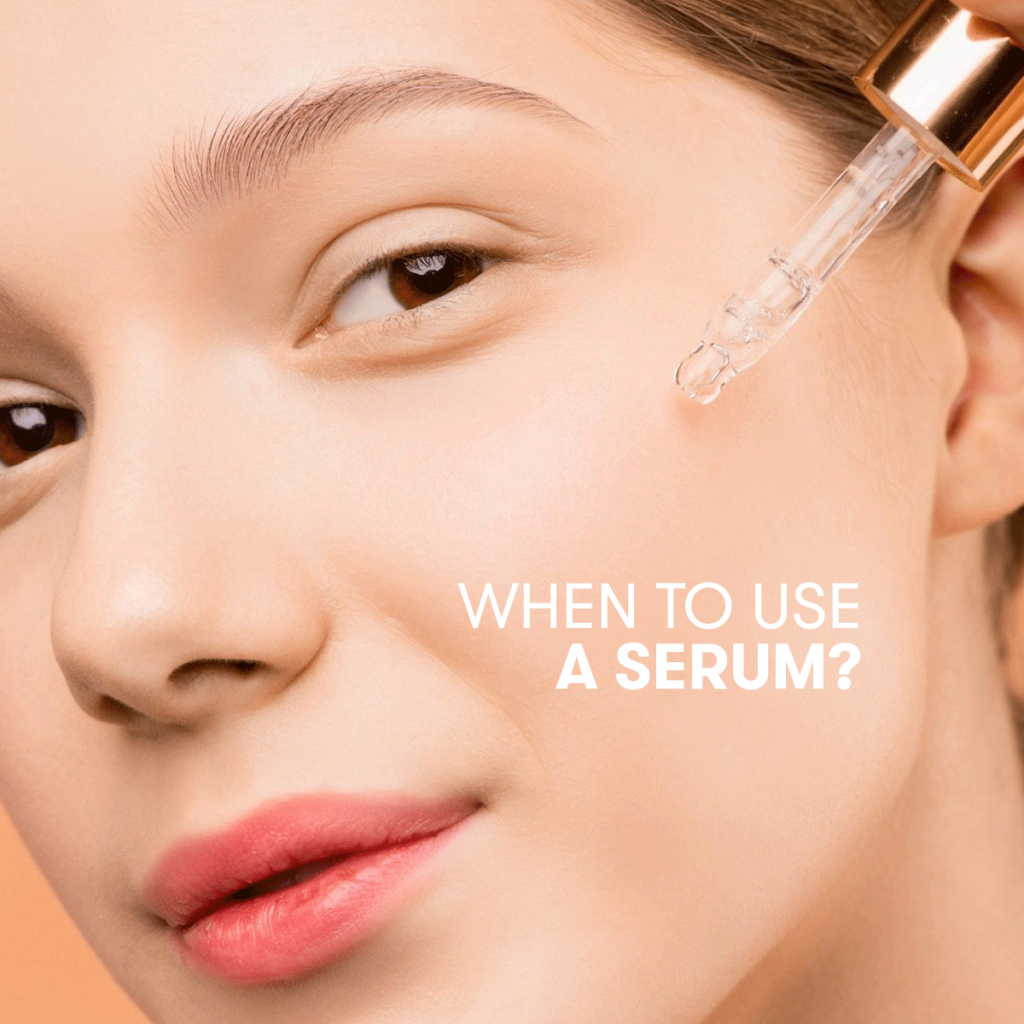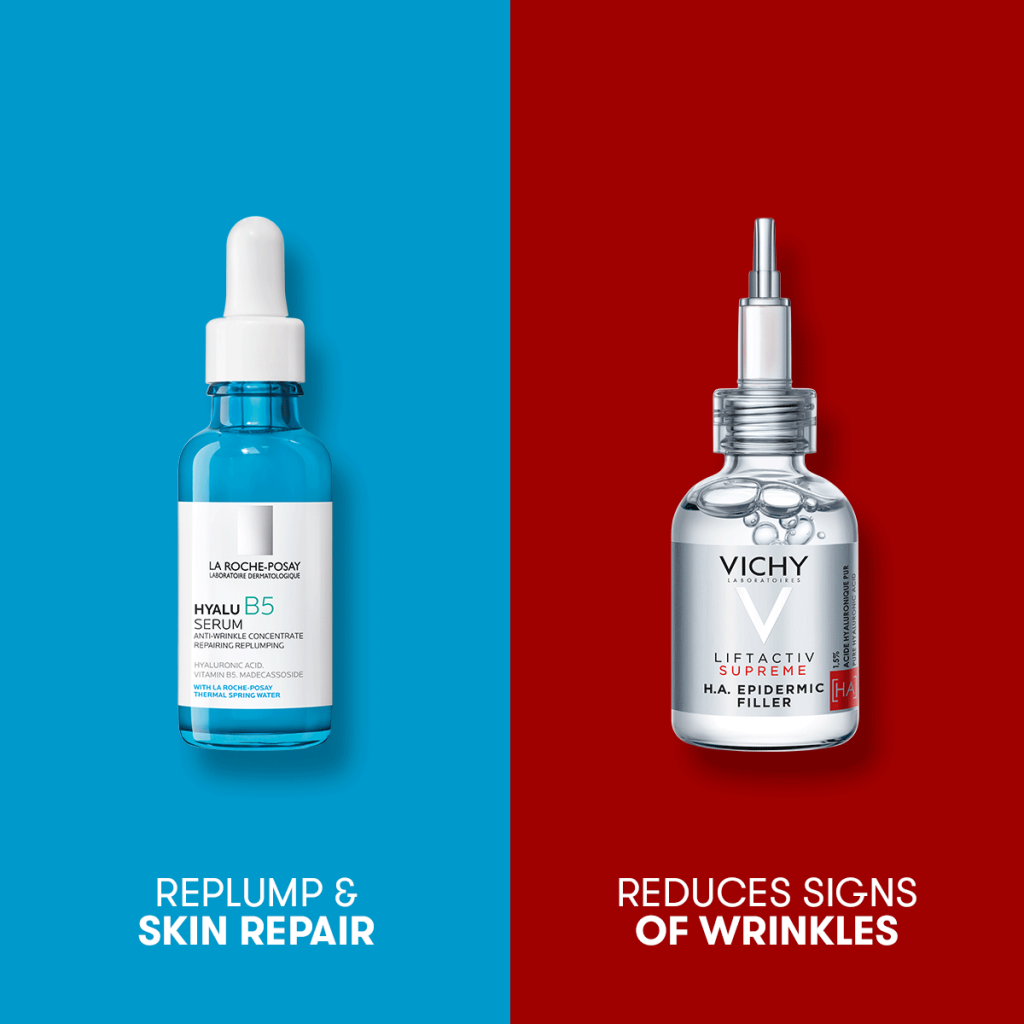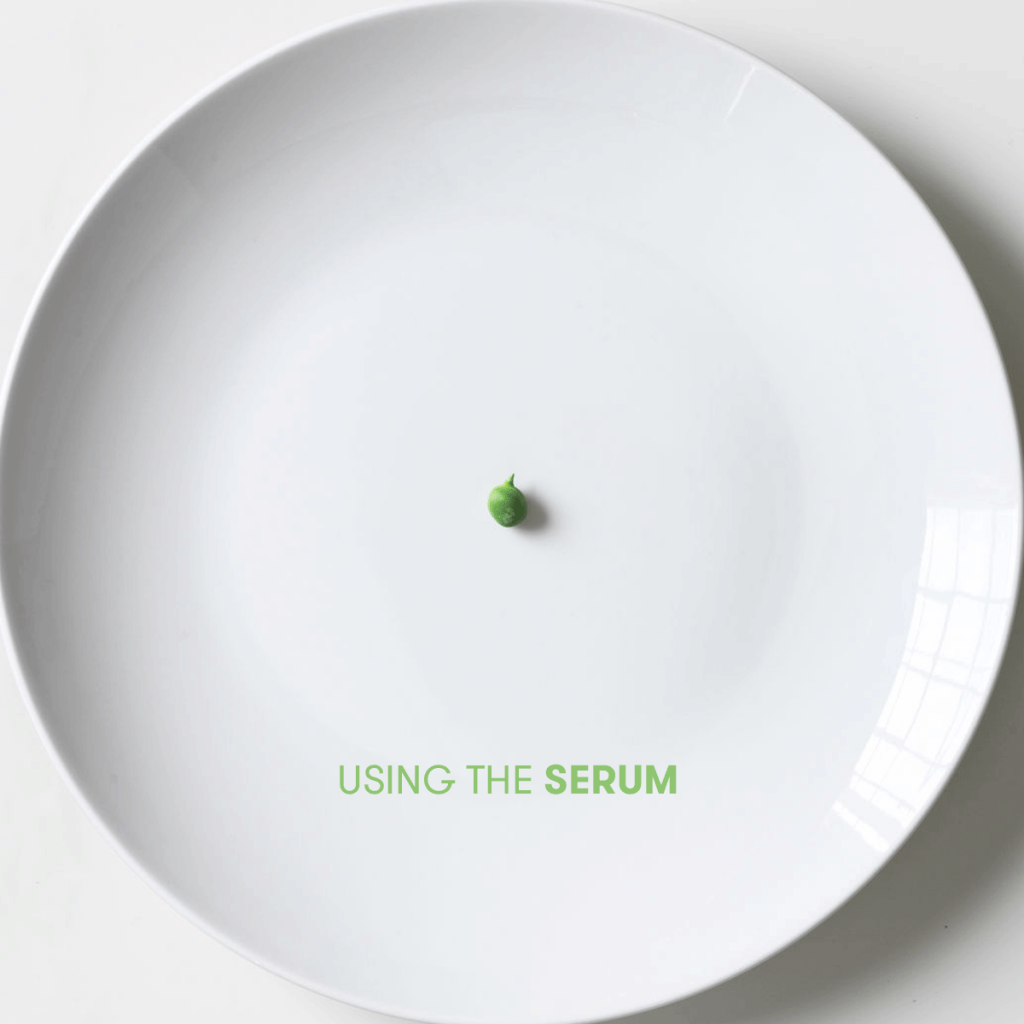You might already be cleansing your skin routinely, perhaps using a toner, and regularly applying a moisturiser – but are you doing enough to care for the skin on your face as you age? Could your problem areas also be tackled better? Let’s talk about serums!
Adding another product may seem excessive when you want to get started on your day or get a couple more minutes in bed, but this short step could make all the difference in getting healthier skin and maintaining a youthful look for longer.
What makes serums different from other products lies not only in what they contain but also in what they do not. They are the thinnest products you can apply on bare skin and do not contain ingredients (e.g. petrolatum, mineral oil) that prevent water from evaporating from the skin or air from reaching the skin. They also contain few ingredients usually used for lubricating or thickening products and so penetrate quickly into the skin due to their tiny molecules. This allows serums to deliver active ingredients such as antioxidants and vitamins at a deeper level than moisturisers do.
Since they consist of mainly active ingredients, a small amount of serum goes a long way, and this quality tends to be reflected in the price. The advantage is that when a serum is applied properly, one bottle can last a while.
When should I use a serum?
Contrary to the false idea that serums are oily and therefore too rich for some skins, they are actually useful for dealing with different types of skin. Due to their lightweight formulas, people with oily skin (or of a younger age) can use a serum with a light and non-greasy finish.
Care should be taken in certain skin conditions such as eczema and rosacea. Serums can be irritating when the skin surface is broken, causing the serum to penetrate the skin layers too fast and even too deeply. In these cases, a dermatologist should be consulted. This is not to say that irritated skin cannot be helped by serums; serums can have calming and anti-inflammatory properties (e.g. aloe vera, shea butter) that help soothe and nourish even sensitive skins.

Which serum should I choose?
For mature and dry skins, the serum penetrates into the skin layers to reduce fine wrinkles and dark spots, while the moisturiser keeps the skin hydrated and supple. Glycerin and hyaluronic acid, both found in Hyalu B5 Hyaluronic Acid Serum by La Roche-Posay, are the ingredients to look out for when you want a hydrating serum. Retinol is another common ingredient to combat the signs of ageing. Collagen is another ingredient that helps the skin maintain its healthy structure. Vichy’s Liftactiv Supreme HA Epidermal Filler Serum contains hyaluronic acid as well as vitamins CG and B5 to leave the skin hydrated, smooth, plump, and youthful-looking. Serums can deliver multiple effects in one product. Exfoliating serums gently remove dead cells from the skin to promote youthful skin and radiance. These often contain ingredients such as glycolic and salicylic acid. Other serums, such as La Roche-Posay’s Pigmentclar Serum, can deliver antioxidant effects to remove dark spots, while also plumping and hydrating the skin from within. Serums containing vitamin C, such as Pure Vitamin C 10 Serum from La Roche-Posay’s Redermic range, and Vichy’s Liftactiv Supreme Vitamin C Brightening Skin Corrector can reduce wrinkles, heal the skin surface, reduce pigmentation and other sun damage, and brighten the complexion.
Vichy’s Mineral 89 Hyaluronic Acid Booster promotes skin health and can be used before applying another serum or moisturiser. It gently plumps the skin while strengthening this delicate barrier to protect it from the daily impact of pollution and other irritants.

How should I use the serum?
A pea-sized amount of your chosen serum should be applied after the skin has been cleansed and dried properly. Gently apply the product by patting it evenly all over the face with a finger. Then apply your moisturiser (and sun protection) as a last layer. Think of your serum and moisturiser as the wonderful duo protecting the different layers of your skin, giving it a healthy glow.

Sources:
Michelle, J. Face Serums – Are They Necessary To Your Skincare Routine? Authority Reports. December 11, 2018. Accessed at: Face Serums – Are They Necessary To Your Skincare Routine? (authorityreports.com)
Levitt, S. The Truth About Facial Serums. WedMD. Accessed at: The Truth About Facial Serums (webmd.com)

